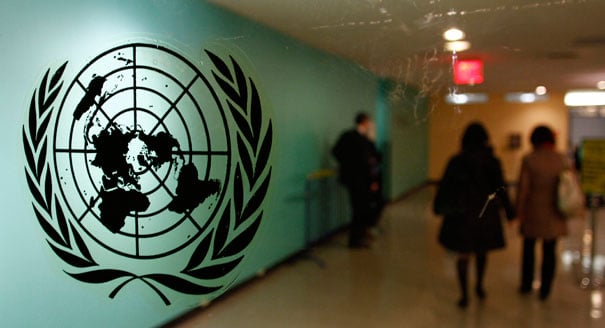
Pakistan has started acting under the UN Security Council resolution seeking a weapons embargo against Yemen’s Houthi rebels as well as freezing their assets and restricting their international movement.
The move comes a day after a high-level meeting attended by the prime minister and services chiefs decided to extend all possible help to Saudi Arabia in line with the UN’s decision on the Yemeni conflict.
The foreign office has directed the relevant authorities to implement the resolution, a statement issued on Friday said.
On April 14, the UN Security Council had imposed an arms embargo on the Houthi rebels, who now control most of Yemen as battles in the south of the country continued with forces loyal to Saudi-backed President Abd Rabbu Mansour Hadi. The resolution urged the member states, particularly those neighbouring Yemen, to ensure the new restrictions were imposed on rebellion leaders.
The foreign office said Pakistan would take all measures to fully implement the provisions of the UNSC resolutions 2140 (2014), 2204 (2015) and 2216 (2015) on the Yemen situation in line with its international obligations.

On Friday, the foreign affairs ministry issued SRO 324(I)/2015 directing the authorities concerned to freeze the assets of Houthi leaders, ban their international travel and carry out other related obligations in accordance with the relevant provisions of the UN resolutions.
However, the statement did not say what measures Pakistan was contemplating to ensure the implementation of UNSC resolution.
It is believed that Pakistan may also send naval vessels to the Arab peninsula to join other Gulf States to stop the supply of weapons to Houthis from other countries.
Pakistan has been under pressure from Saudi Arabia to join its military alliance against the Houthis despite a unanimous parliamentary resolution seeking neutrality on the conflict in the Arabian Peninsula. Saudi Arabia has accused Iran of sending arms and equipment to Houthis, a charge Tehran has strongly denied.
The joint parliament resolution had evoked a strong reaction from the Gulf states, particularly the United Arab Emirates whose deputy foreign minister warned Pakistan of paying a “heavy price” for not supporting the Saudi-led offensive. The government is trying to control the damage but is still undecided whether to accept the Saudis demand of sending troops to Yemen.
The UNSC had imposed a global asset freeze and travel ban on Ahmed Saleh, the former head of Yemen’s Republican Guards, and on Abdulmalik al Houthi. Saleh’s father, former Yemen president Ali Abdullah Saleh, and two other senior Houthi leaders, Abd al Khaliq al Huthi and Abdullah Yahya al Hakim, were blacklisted by the Security Council in November. The elder Saleh, who was forced to step down in 2012, is widely seen as the one behind the conflict in league with the Houthis.
The UNSC resolution has provided Pakistan an opportunity to contribute to the action against the Yemeni rebels, though in a non-offensive role.
Published in The Express Tribune, April 18th, 2015.

1732569774-0/Baymax-(2)1732569774-0-165x106.webp)















COMMENTS (1)
Comments are moderated and generally will be posted if they are on-topic and not abusive.
For more information, please see our Comments FAQ